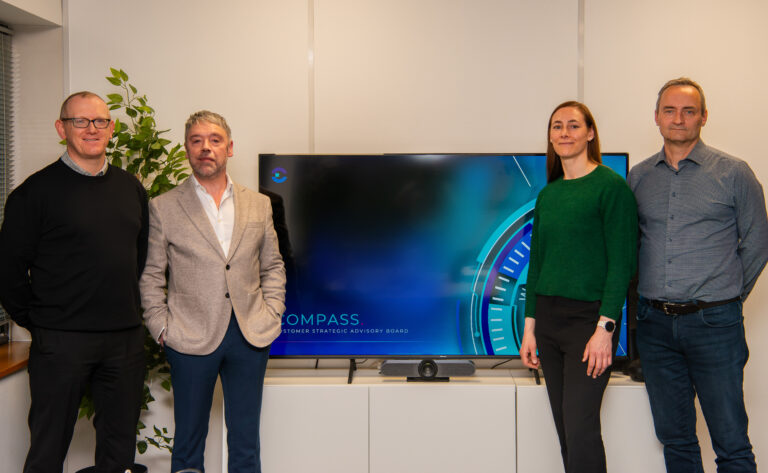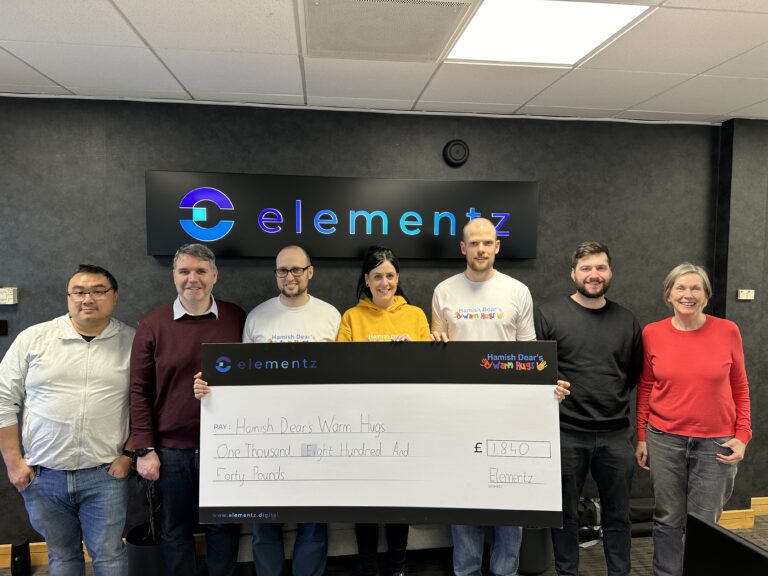In collaboration with Saleh Seyedzadeh, Head of Data, The Data Lab
The architects of the Blue Digital Ecosystem
As AI, analytics and automation take centre stage in modern enterprises subsea, one role has emerged as the foundation of operational success: the Data Engineer. These professionals design and maintain the robust data infrastructure necessary to introduce, leverage and power AI-driven decision making, predictive analytics and scalable digital ecosystems.
Without clean, organised and accessible data, even the most advanced technologies cannot function effectively. As we build a Blue Digital Ecosystem, Data Engineers play a crucial role in enabling secure, standardised and trusted data that supports operational efficiency and transformation across a complete energy infrastructure subsea.
The unsung heroes of Subsea Digital Transformation
Data Engineers are often behind the scenes, ensuring organisations can extract value from their data. They act as the architects of digital transformation by designing and optimising data pipelines, data platforms and cloud infrastructures. Without their expertise, operators risk facing inefficiencies, unreliable analytics and poor AI performance.
But despite their rising importance, the broader workforce isn’t fully equipped to meet demand. According to The Data Lab’s 2024 Skills Survey, only 8% of public and private sector respondents actively use data engineering skills today. Yet 12% cite them as a future requirement, signalling a significant talent and awareness gap.
Further compounding the issue, 20% of employers confessed to having limited understanding of what data engineering even entails. Without strategic investment in this discipline, organisations risk inefficiency, poor AI performance, and missed opportunities.
Collaboration with Subject Matter Experts (SMEs)
Traditional operations teams are evolving, rapidly adopting and adapting advanced technologies rather than relying on manual, field-based processes. This means Data Engineers do not work in isolation. They collaborate closely with SMEs to ensure data is contextualised and meaningful. SMEs provide domain expertise that helps Data Engineers structure and process data in ways that align with domain and operational needs. For example, in subsea integrity management, SMEs guide Data Engineers in utilising inspection data from Elementz to combine with dynamic monitoring to create and optimise predictive maintenance models or to enhance geospatial and visualisation tools.
Bridging the gap between data and subsea operations
These digitally enabled operations teams rely on accurate insights to drive optimisation and manage cumulative risk. Data Engineers create the systems and intelligence that enable these insights, from real-time dashboards to automated events and alerting mechanisms. By integrating data pipelines with domain expertise, they enable faster, more informed decision-making. In subsea environments, where safety and efficiency are paramount, seamless data flow isn’t just an advantage, it’s the difference between proactive risk management and costly, conservative guesswork.
Within a Blue Digital Ecosystem, SMEs and Data Engineers collaborate to create a unified, interoperable framework for data-driven decision-making. By leveraging AI models trained on trusted, standardised datasets, these teams ensure operational choices are backed by reliable intelligence. As a result, operations teams can confidently state, “We are safe, and we know it.”, rather than second-guessing with unnecessary precautionary checks.
Scotland is emerging as a leader in this area. Through initiatives like the Smart Manufacturing Data Hub (SMDH), supported by The Data Lab, more than 150 SMEs across the UK are already enhancing their data capabilities. These modular, cloud-edge architectures are proving highly transferable to the offshore and marine sectors.
The Talent Pipeline challenge
As subsea operations become more data-intensive, their digital architecture must scale accordingly. Engineers must design systems that handle increasing data volumes, integrations, and security requirements without compromising performance.
Elementz’s SaaS solution exemplifies this kind of scalability, enabling operators to adapt quickly to changing data demands, while maintaining operational integrity.
However, as The Data Lab’s recent research shows, a significant national skills gap persists. The new 2025 Data & AI Skills Framework, based on quantitative and qualitative data from every Scottish region, reveals several key challenges:
- Skills shortages are more acute outside the Central Belt and within small businesses.
- Most organisations rate their data and AI literacy as moderate to low.
- Only 25% of surveyed organisations have a formal data strategy.
- Micro and small enterprises lack specialised data roles and often do not prioritise upskilling.
- While there is general awareness of AI, many companies struggle to apply it practically or ethically.
The Data Lab has responded by developing a comprehensive Data & AI Skills Taxonomy. This tool outlines core competencies at foundational, intermediate, and advanced levels, guiding both technical professionals and organisational leaders toward building resilient and future-ready teams.
Scaling and being future ready-now
As subsea operations become more digitally enabled, their needs and expectations naturally expand. Data engineers design scalable architectures, leveraging cloud computing, distributed systems, and data sources to ensure organisations can handle increasing data, system and application volumes and integrations without compromising performance.
Elementz’s SaaS solution is designed with scalability in mind, enabling subsea operators to handle growing data volumes. This ability to scale quickly and securely, positions subsea operations teams to adapt to the rapid changes in the energy sector and capitalise on the benefits of AI and automation.
Companies with a strong data engineering foundation can integrate new technologies, retain agility to evolving business needs, and remain competitive in a rapidly changing energy landscape.
Within the subsea sector, a connected, standardised data ecosystem will enable cross-industry collaboration, allowing AI-powered solutions to be built, adopted, and adapted at scale. Instead of fragmented digital landscapes, a cohesive approach to data management ensures interoperability between offshore energy, marine technology, and conservation initiatives
Scotland’s natural advantages, abundant renewable energy and a cool climate, position it as a potential global leader in green, AI-ready data centres. However, this potential can only be unlocked through skilled data engineers who understand both cloud-native architecture and industry-specific needs.
The Data Lab is already exploring sustainable data practices through collaborations with academia, government, and policy partners. Embedding environmental sustainability into digital systems design is no longer optional, it’s essential. As AI adoption expands, the ability to integrate systems securely and responsibly becomes a core organisational capability.
The foundation of eco-system thinking
Data Engineers are not just facilitators, they are enablers of the blue digital ecosystem. Their expertise in building scalable, secure, and high-quality data systems is the foundation upon which AI, analytics, and automation thrive. As businesses, particularly in subsea and offshore energy industries, navigate an increasingly data-driven world, investing in data engineering capabilities will be essential for long-term success.
Elementz’s subsea asset integrity software plays a critical role in this unified blue digital ecosystem, allowing data flows between internal and external teams, applications, data gathering technology and soon advanced AI models. By offering well-structured and secure data in one place, Elementz allows Data Engineers to create robust, scalable infrastructures that support real-time decision-making and predictive analytics across the subsea industry.
By embracing collaboration, secure data-sharing, and AI-driven transformation, operators and technology providers can unlock new efficiencies, drive sustainability, and create new business models, ensuring the subsea industry thrives in an interconnected digital ecosystem.
The rise of the data engineer is not just a trend; it is a fundamental shift in how organisations leverage technology to drive innovation, efficiency, and growth beneath the waves.
The future is taking shape
Scotland’s evolving Data & AI Skills Framework, bolstered by initiatives like The Data Lab Academy and modular MSc programmes, provides a strong foundation. What’s needed now is industry-wide adoption and long-term investment in the digital professionals who will shape the future of our energy and marine systems.
The future of subsea is digital and the future of digital is being built by Data Engineers, turning oceans of data into the ecosystems of tomorrow.
Explore our next-generation subsea asset integrity management software to discover how we support the change in subsea operations.







